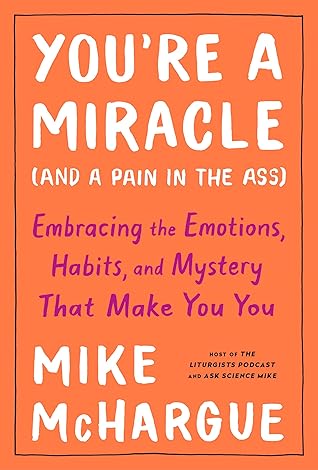More on this book
Community
Kindle Notes & Highlights
Though you may think of yourself as the conductor of the orchestra that is your life, you are more like the orchestra itself, a myriad of musicians coming together to create a single symphony.
You aren’t broken either. You are here. You are alive. You have survived the challenges of life, and each part of you—even the parts you don’t like or appreciate—has played a role in your continued existence. There isn’t a piece of you that hasn’t been fearfully and wonderfully made, tested by the unforgiving process of natural selection.
You read that right. When a male turkey’s instincts are overwhelmed by an intensity of stimulus that doesn’t happen in nature, it will try to mate with a stick instead of an actual female turkey. I think that does a good job of explaining how Tinder works.
We’ve trained people to view their behaviors as personal, moral failures. But that view isn’t just limited—it’s often flat-out wrong.
But what if happiness is overrated, and other emotions like anger, or even sadness, are misunderstood? What if our distaste for these other emotions is making us miserable?
Inhibiting affects are feelings like anxiety, worry, guilt, and shame. They allow us to escape any core affect that feels “unsafe” to us. Why would our own emotions feel unsafe? Usually, it’s because when we were children, our parents, our peers, or something we saw in media showed us that the emotion wasn’t allowed.
Inhibiting affects are unpleasant, so we learn to cope with defensive affect. Defensive affect helps with coping, but not with processing the original emotion and source stimulus. Often, we get “stuck” in a cycle of inhibiting and defensive affects, restricting our emotional range while also preventing us from operating in core state. Our “home base” becomes an inhibiting affect, like anxiety, and we mask that from ourselves and our social groups via defensive affect.
One week, when she asked me what stopped me from crying, I paused for a moment, and then told her the truth: “I’m afraid that if I start, I will never stop.”
When the sympathetic nervous system fires up, it can take ten to twenty minutes for the parasympathetic nervous system to calm your body back down.
Anxiety doesn’t tell us very much. It’s like the “check engine” light in your car, which tells you something’s wrong without telling you what it is. To escape anxiety, we can’t just focus on external factors. We have to look under the hood.
When the machines learned we liked to look at happy, attractive people, the seeds for mass loneliness and depression were sewn. The machines watch what we like, and then offer a curated form of reality that is not just inaccurate, but hurtful.
My point here is that our brains didn’t get like this so you could do physics or build computers. Most of the reason you have such a big brain is so you can fit into the complex culture created by your fellow social mammals.
Any good marketer will tell you that simple and accessible beats accurate every time.
Humans are social primates. Like trees, we are wildly interdependent for not just survival but the quality of life. But our left-brain world tells us to see ourselves as individuals, creating disconnection and disembodiment as sad as a lone tree in the middle of a field, waiting for a storm strong enough to knock it down.
In this way, “niceness,” which is to say, distancing ourselves from uncomfortable feelings, becomes a veneer that masks the cruel and inequitable foundation of our civilization. It encourages us to police any behaviors and feelings that provoke discomfort, and in doing so, we oppress and disenfranchise people, sometimes without intending to do so.
Kindness, on the other hand, means taking ownership of your agency in a way that fosters intimacy. Niceness says a black woman can’t be angry when she discusses police brutality, but kindness says that supportive listening and acknowledgment of pain is the only way to live in relationship. Niceness is disembodied, while kindness begins in our guts and in our bones. Niceness is a veneer, but kindness goes to the heart.


